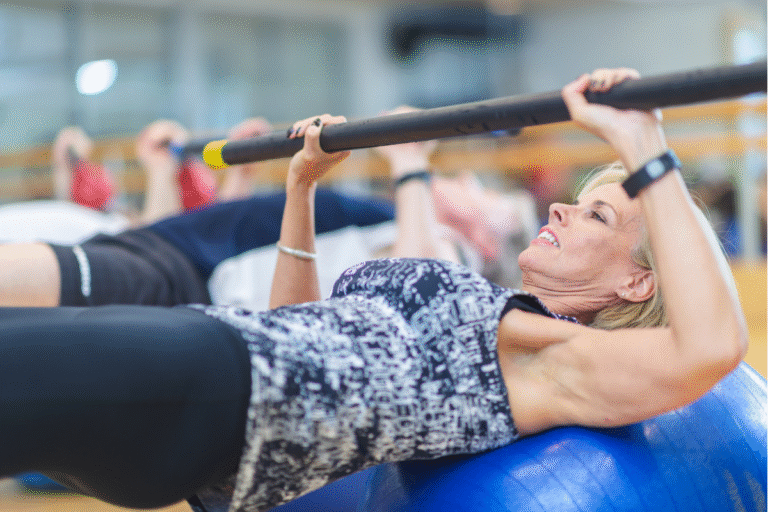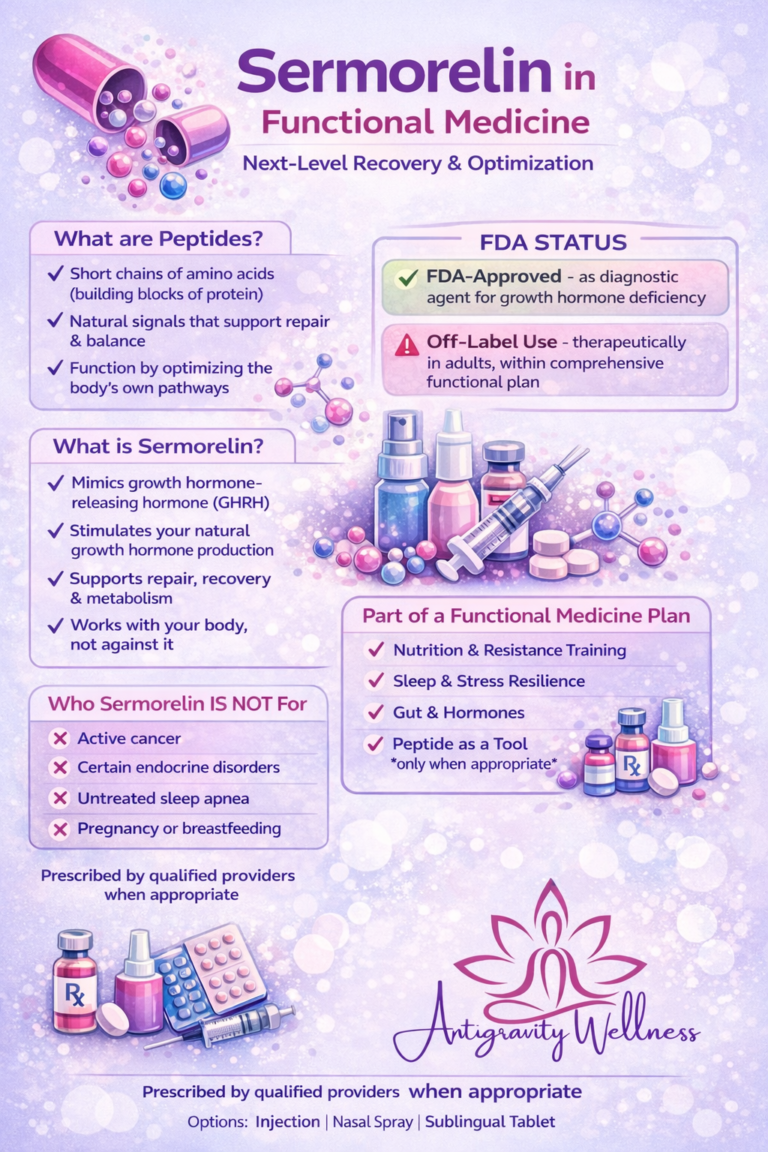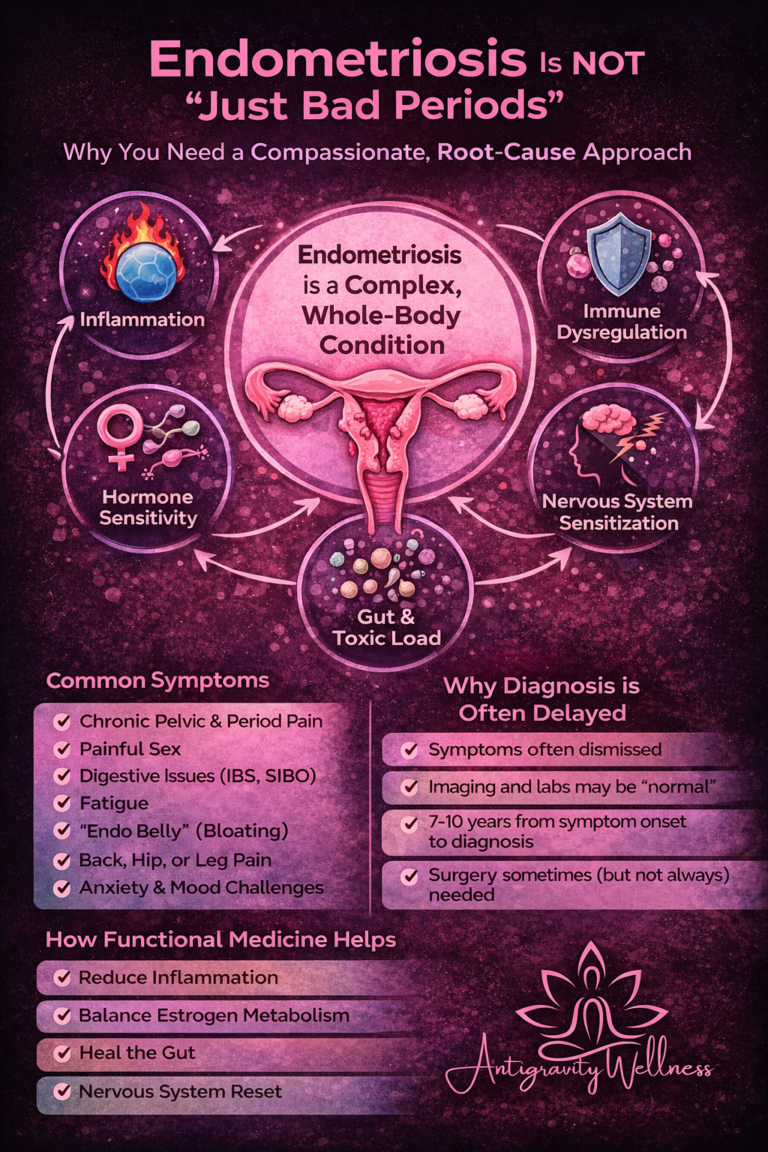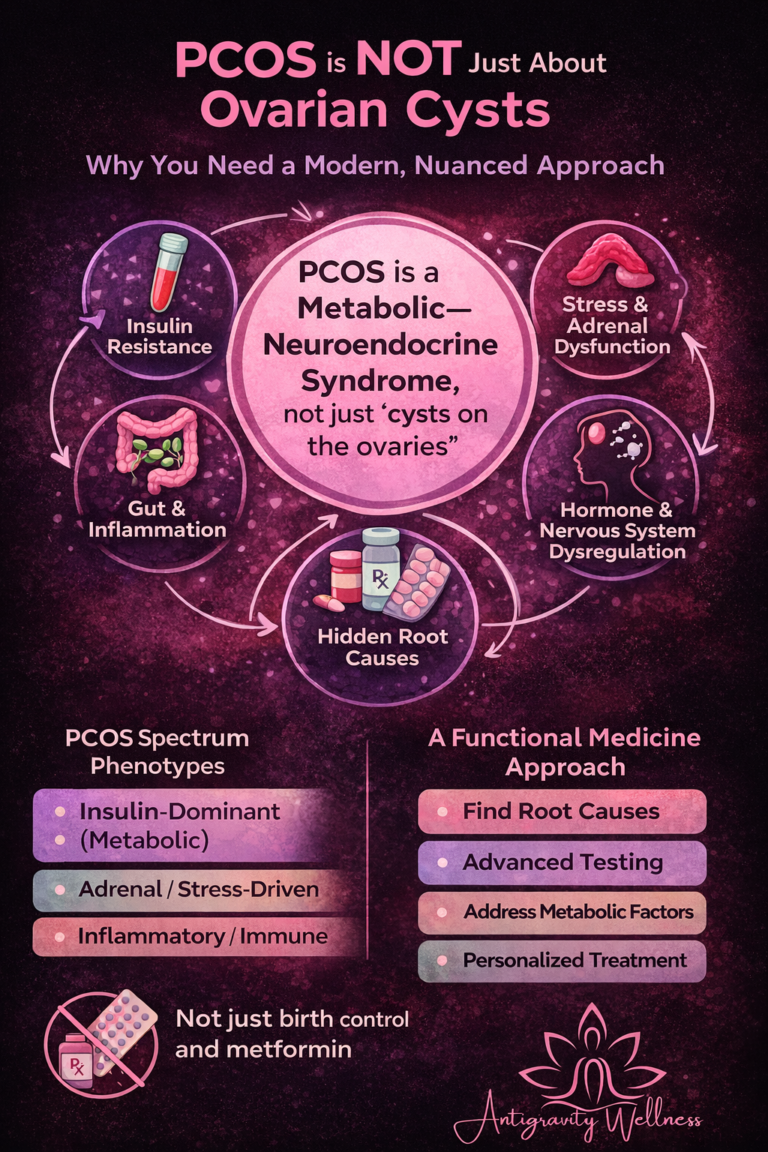
🌸 The Story: When “Healthy Habits” Stop Working
I remember a time in my late 30s when I thought I was doing everything right.
I was eating clean, running several times a week, and managing work, home, and life — yet I felt constantly tired, my clothes fit differently, and my muscle tone disappeared almost overnight.
Sound familiar?
Many of my patients tell me the same thing:
“I’m doing what I’ve always done, but my body just doesn’t respond anymore.”
It’s not your imagination.
After 40 — especially in perimenopause and menopause — your body changes on a cellular level.
Your hormones, metabolism, and muscle tissue all start to shift, and the workouts that used to work no longer deliver the same results.
The solution isn’t “doing more cardio.”
It’s strength training.
🧬 The Science: Why Strength Training Is Essential Over 40
After age 30, women naturally lose 3–8% of muscle mass per decade, and that rate accelerates after menopause due to lower estrogen.
This loss of lean tissue — called sarcopenia — isn’t just about appearance. It affects:
- 🩸 Metabolism: Less muscle means fewer calories burned at rest.
- 💪 Hormones: Strength training improves estrogen balance, testosterone, and growth hormone levels.
- 🦴 Bones: Lifting weights helps prevent osteoporosis by increasing bone density.
- 🧠 Brain health: Exercise boosts BDNF — the brain’s “growth factor” — improving memory and focus.
- 💓 Longevity: More muscle mass is directly linked to longer lifespan and better quality of life.
In short: muscle is medicine.
It’s your armor against aging, disease, and burnout.
🧘♀️ The Shift: From “Skinny” to “Strong”
When I talk to women in their 40s and 50s, many still carry the old fear that lifting weights will make them “bulky.”
But here’s the truth: women don’t produce enough testosterone to bulk up like men.
Strength training creates shape, tone, and confidence. It builds the kind of functional strength that lets you move through life — not just survive it.
It’s the difference between:
- Struggling to lift a heavy box… versus feeling capable.
- Avoiding mirrors… versus seeing yourself as powerful.
- Counting calories… versus celebrating strength.
🧩 Case Study: From Fatigue to Fierce
Meet Erin, 49, one of my clients who thought her metabolism had just “slowed down.” She was walking daily and eating well, but still gaining weight, feeling exhausted, and noticing brain fog.
Her labs told the story: declining estrogen and progesterone, elevated cortisol, and mild insulin resistance — the perfect storm for muscle loss and fatigue.
We created a plan that included:
- Progressive strength training three days per week
- A protein-rich meal plan tailored to her hormones
- Magnesium and omega-3 supplementation
- Stress regulation techniques and sleep optimization
- And a review of her hormone panel to guide safe, functional treatment options
Within 8 weeks, Erin’s energy was back. She felt stronger, slept better, and said her “mental fog finally lifted.”
Her body composition improved — not from dieting harder, but from training smarter.
🏋️♀️ Why Strength Training Works Better Than “More Cardio”
Cardio has its place, but after 40, too much steady-state cardio can actually raise cortisol (your stress hormone) and break down muscle tissue — the very thing you need to protect.
Strength training, on the other hand, acts like a hormone balancer:
- It reduces cortisol and insulin resistance
- It boosts testosterone and DHEA (your vitality hormones)
- It promotes lean muscle, which burns fat even at rest
- It improves mood, confidence, and mental clarity
That’s why I tell women: if you only have time for one kind of exercise, make it strength training.
💎 How to Get Started (No Gym Required)
You don’t need fancy equipment or hours in the gym.
Start simple:
- 2–3 full-body sessions per week
- Focus on compound moves like squats, deadlifts, and presses
- Add resistance bands or dumbbells as you progress
- Prioritize form over speed
- Pair with adequate protein and recovery
Remember: your goal isn’t perfection — it’s progress.
🌿 How Antigravity Wellness Helps You Do This Right
At Antigravity Wellness, we believe midlife health isn’t just about surviving hormone changes — it’s about thriving through them.
Our approach is comprehensive care for women in Washington and Oregon, combining:
✅ Fitness & nutrition coaching tailored to your hormonal phase
✅ Functional lab testing to identify root causes
✅ Medical provider support for diagnosis & personalized treatment
✅ Ongoing guidance to balance hormones, build strength, and optimize energy
We don’t separate fitness from healthcare — we integrate them. Because your body doesn’t exist in silos, and neither should your care.
You can take our Readiness Questionnaire to see if working with Antigravity Wellness is right for you. From there, we’ll guide you into a customized plan that fits your goals and your lifestyle.
💗 Perimenopause? Click here for your Strength & Vitality Workout Guide.
💜 Menopause? Click here for your Resilient & Radiant Workout Guide.
📚 References
- Phillips, S. M. (2017). Current concepts and unresolved questions in dietary protein requirements and supplements in adults. Frontiers in Nutrition, 4, 13. https://pubmed.ncbi.nlm.nih.gov/28534027/
- Nelson, M. E. et al. (1994). Effects of high-intensity strength training on multiple risk factors for osteoporotic fractures in postmenopausal women. JAMA, 272(24), 1909–1914. https://pubmed.ncbi.nlm.nih.gov/7990242/
- Giovanni Iolascon. et al. (2014). Physical exercise and sarcopenia in older people: position paper of the Italian Society of Orthopaedics and Medicine. https://pubmed.ncbi.nlm.nih.gov/25568656/
- William J Kraemer (2005). Hormonal responses and adaptations to resistance exercise and training. https://pubmed.ncbi.nlm.nih.gov/15831061/
- Westcott, W. L. (2012). Resistance training is medicine: effects of strength training on health. Current Sports Medicine Reports, 11(4), 209–216. https://pubmed.ncbi.nlm.nih.gov/22777332/
⚕️ Medical Disclaimer
This content is for educational purposes only and should not be used to diagnose, treat, or replace individualized medical advice.
Always consult with a qualified healthcare provider before beginning or modifying any treatment, supplement, or exercise program.
© 2025 Antigravity Wellness. All rights reserved.




